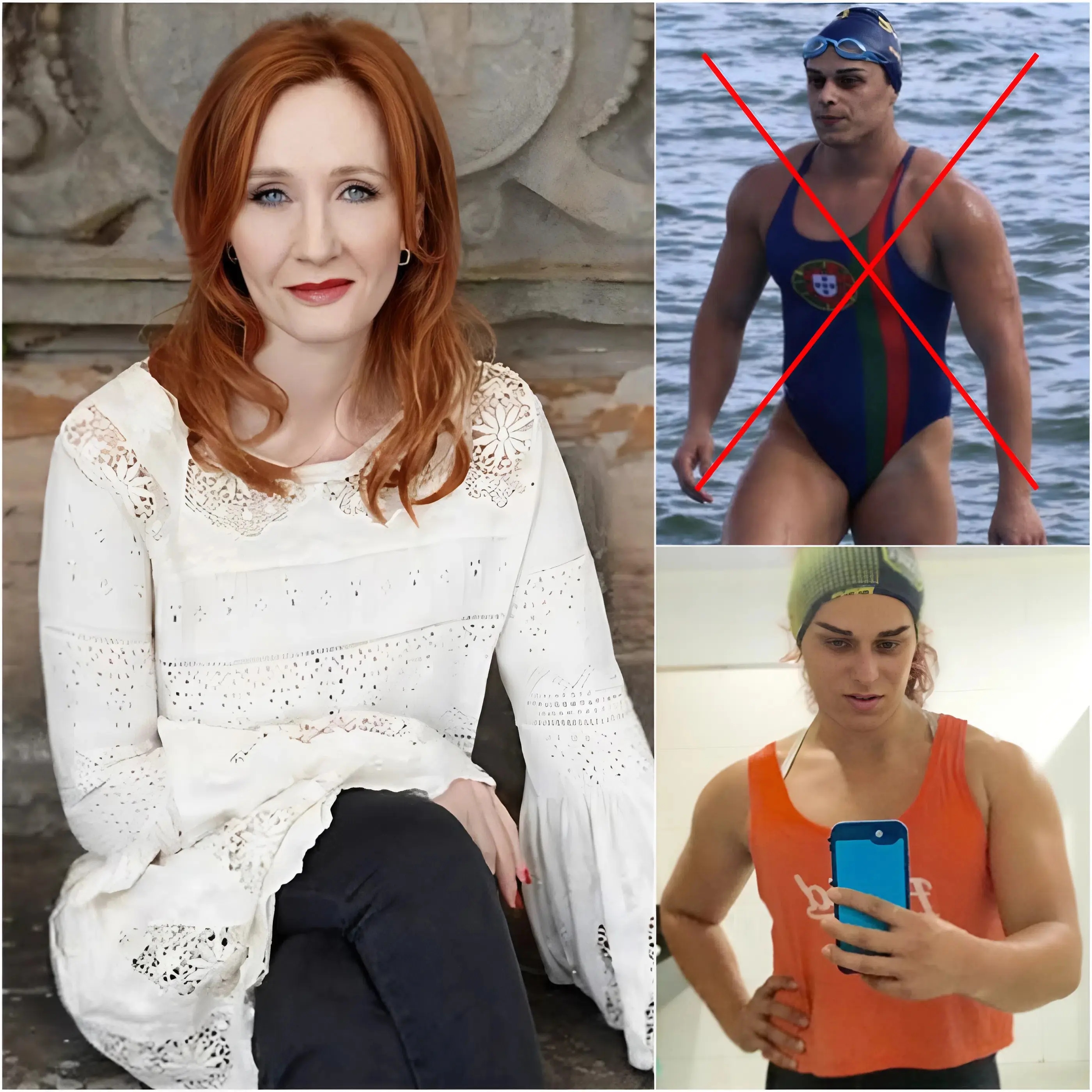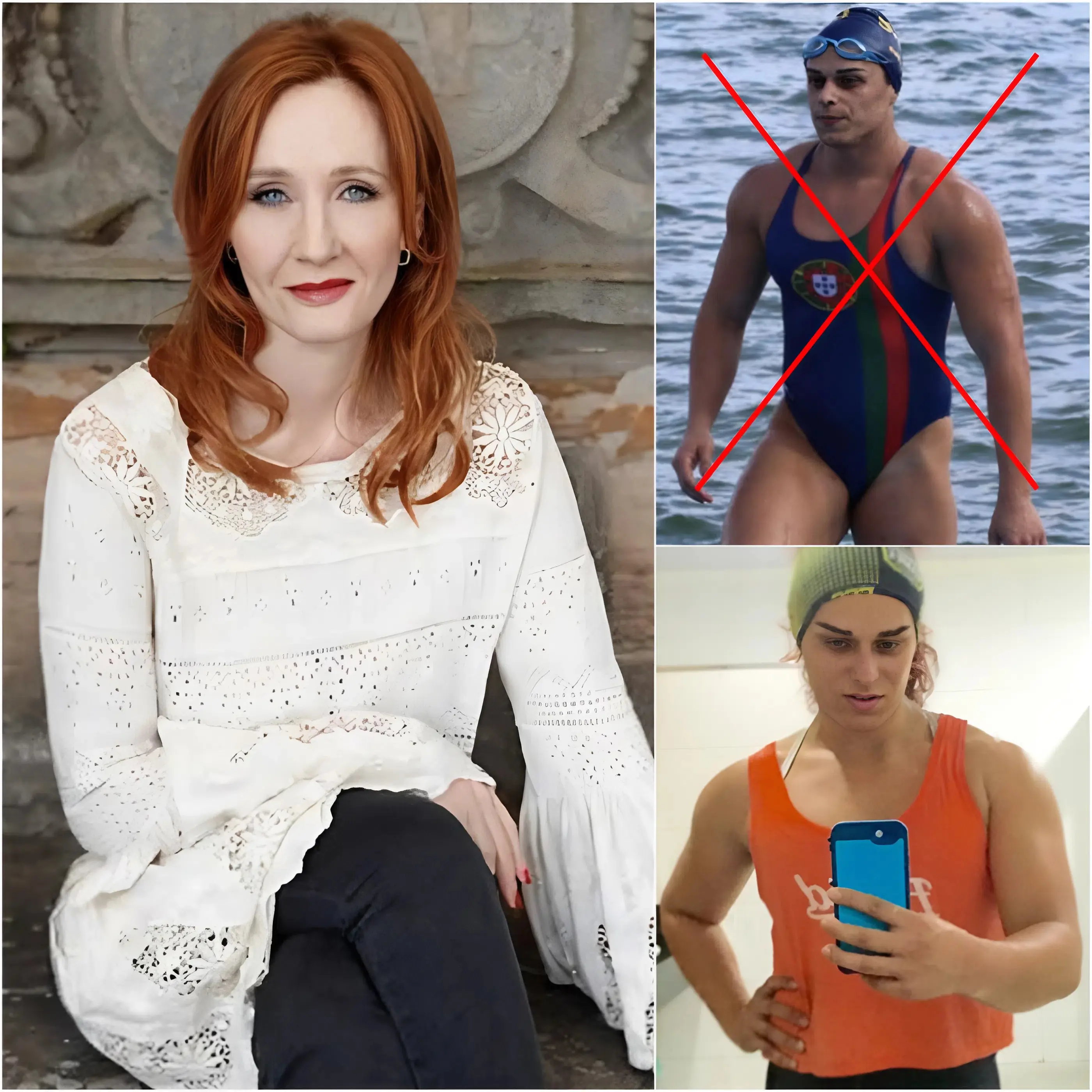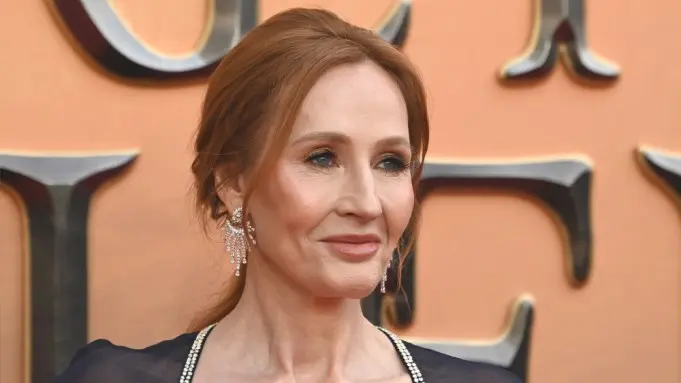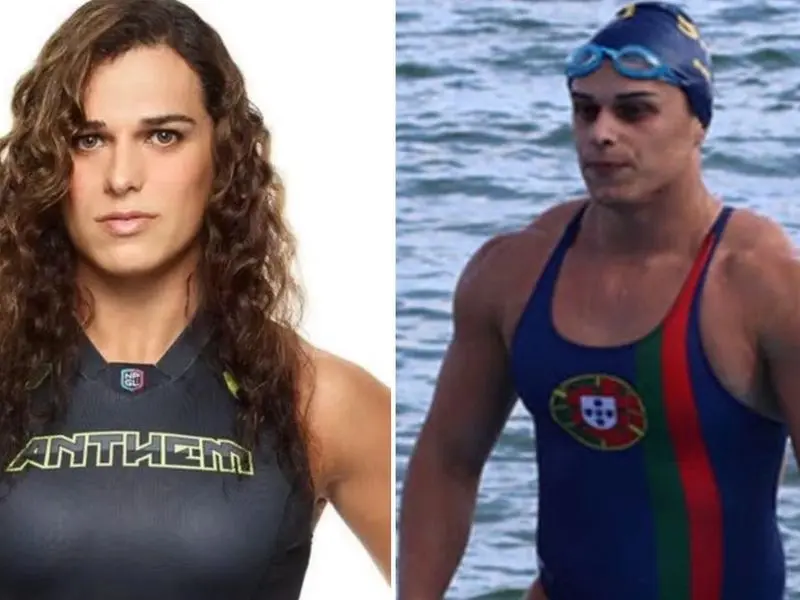ss GLOBAL TRANSGENDER BAN: Transgender women, including ‘DSD’ athletes such as Imane Khelif, will be barred from competing in all women’s Olympic events!

In a seismic shift for international sports, the International Olympic Committee (IOC) is poised to implement a blanket ban on transgender women competing in women’s Olympic events. This policy, expected to take effect as early as February 2026, will also extend to athletes with differences of sex development (DSD), such as Algerian boxer Imane Khelif. The decision stems from a comprehensive scientific review highlighting retained physical advantages from male puberty, even after hormone suppression.

IOC President Kirsty Coventry has championed the move, emphasizing the need to “protect the female category” for fairness. The announcement follows months of deliberation, triggered by controversies at the 2024 Paris Olympics. Sources indicate the ban could be formalized at the IOC’s 145th Session in Milan, just before the 2026 Winter Games. This policy reversal marks a departure from the IOC’s 2021 framework, which deferred eligibility to individual sports federations.
The review, led by IOC Director of Health, Medicine, and Science Dr. Jane Thornton, presented data to members in Lausanne last week. It concluded that transgender women maintain superior muscle mass, bone density, and lung capacity post-transition. Similarly, DSD athletes—born female but with XY chromosomes and elevated testosterone—exhibit comparable edges. Thornton’s findings underscore that no current mitigation fully levels the playing field, prompting unified IOC support for restrictions.

This isn’t just about transgender inclusion; it redefines boundaries for intersex competitors too. For Khelif, who clinched welterweight gold in Paris, the implications are profound. Though not transgender, her prior disqualification by the International Boxing Association (IBA) for failing gender tests has fueled speculation about DSD. World Boxing now demands chromosomal verification for her participation, a stipulation she has appealed. The IOC’s stance could sideline her from future Olympics, reigniting debates on biology versus identity.
The Paris 2024 Games exposed these fractures vividly. Khelif’s semifinal victory over Italy’s Angela Carini lasted mere 46 seconds, sparking outrage and misinformation. Social media erupted with false claims that Khelif was transgender, amplified by figures like former U.S. President Donald Trump and author J.K. Rowling. In reality, Khelif identifies as female, born and raised as such in Algeria. Yet, the IBA’s opaque testing—citing XY chromosomes—led to her and Taiwan’s Lin Yu-ting being barred from the 2023 Worlds, only for the IOC to reinstate them based on passport gender.
Lin, who won featherweight gold, faced similar vitriol but has remained silent post-Olympics. The IOC defended their eligibility, criticizing the IBA’s process as “sudden and arbitrary.” However, the backlash eroded trust in women’s categories. Over 50 petitions and protests demanded investigations, with some athletes withdrawing in protest. This incident, coupled with prior cases like New Zealand weightlifter Laurel Hubbard’s 2021 debut, accelerated the policy pivot. Paris wasn’t an isolated flare-up; it crystallized years of simmering tensions.

Historically, Olympic gender verification has been fraught. From the 1968 “femininity certificates” in Mexico City—requiring invasive exams—to chromosome testing abandoned by 2000 for being “unscientific and unethical,” the IOC has oscillated. The 2021 guidelines promoted inclusion, allowing transgender women with suppressed testosterone for two years to compete. But federations diverged: World Athletics banned those post-male puberty in 2023, citing 135 DSD finalists in elite women’s events this century alone. World Swimming followed suit, excluding Lia Thomas-like figures.
Caster Semenya’s saga exemplifies DSD challenges. The South African runner, with 5α-reductase deficiency, dominated the 800m, winning golds in London 2012 and Rio 2016. World Athletics mandated testosterone suppression in 2018, which she challenged legally, arguing it violated human rights. The Court of Arbitration for Sport upheld the rules, but Semenya’s appeals persist at the European Court of Human Rights. Her case, affecting mostly athletes from Africa and Asia, highlights how DSD policies disproportionately impact Global South women, often without adequate medical support.
Now, the IOC’s proposed ban aligns with this trend, potentially using SRY gene cheek-swabs for verification, as World Athletics does. Critics warn it revives discriminatory testing, labeling natural variations as “male advantages.” Proponents, including Coventry, insist science demands it: data shows DSD athletes boast 10-20% higher hemoglobin levels, enhancing endurance. For combat sports like boxing, where power disparities risk injury, the urgency is acute—as seen in Carini’s tearful exit, claiming an unfair punch.

Advocates for the ban argue it safeguards Title IX-like equity in Olympics. Women’s sports, hard-won since 1900, face erosion if biological males—trans or DSD—compete unchecked. A 2024 British Journal of Sports Medicine study, IOC-funded, notes trans women retain grip strength advantages despite therapy. Yet, the same research flags disadvantages in flexibility and VO2 max for trans athletes versus cis women. Blanket bans ignore nuances, say opponents, potentially violating IOC’s own Olympic Charter on non-discrimination.
Transgender athletes’ voices are muted in this discourse. Laurel Hubbard, the first openly trans Olympian, failed to medal in Tokyo but praised the experience. Lia Thomas, NCAA swimming champion, sued World Aquatics over exclusions, losing in 2024. Few trans women reach elite levels—only 0.5% of Olympians identify as such—yet their participation symbolizes broader inclusion battles. The ban could deter transitions in sports, exacerbating mental health crises; trans youth suicide rates hover at 40%, per U.S. data, worsened by exclusion. Open categories, proposed by some, offer alternatives but lack infrastructure.
For DSD athletes like Khelif, the fallout is personal. At 27, she’s Algeria’s boxing beacon, overcoming poverty and cultural barriers. Post-Paris, she sued the IBA for harassment and received hero’s welcomes home. Lin, 28, credits boxing for escaping Taiwan’s conservative norms. Banning them as “DSD” erases their lived realities: raised female, no male puberty, yet XY markers deem them outsiders. Media misgendering—tabloids like The Sun pairing her image with trans bans—amplifies harm, blending transphobia with intersex erasure.

Globally, reactions fracture along ideological lines. Conservative outlets hail it as “common sense,” with U.S. Republicans tying it to Trump’s executive orders barring trans women via immigration. In Europe, feminists like Martina Navratilova applaud, citing safety. LGBTQ+ groups decry it as regressive, urging IOC to fund research on case-by-case assessments. The UN has critiqued DSD testing as coercive, potentially violating bodily autonomy rights. As LA 2028 nears, American hosts face pressure to align, amid state bans in 24 U.S. jurisdictions.
Implementation hurdles loom large. Will the ban apply retroactively? IOC insists no—Paris results stand. Enforcement via gene tests raises privacy alarms; false positives could devastate careers. Sports like equestrian or shooting, less strength-dependent, might seek exemptions. FIFA, allowing DSD in women’s soccer, resists uniformity. Coventry’s “pause and reflect” workshops signal ongoing tweaks, but momentum favors restriction.
This policy’s ripple effects extend beyond Olympics. National federations may mirror it, squeezing grassroots trans participation. In developing nations, where DSD diagnosis is rare, athletes like Khelif could vanish from radars, their talents lost. Yet, for cis women, it promises unadulterated competition, honoring pioneers like Billie Jean King. Balancing inclusion and integrity remains elusive; the IOC’s gamble tests whether science can heal divides it helped create.
Looking ahead, the 2026 rollout will be litmus-tested in Milan-Cortina. Winter sports, with fewer trans precedents, offer a soft launch. But boxing’s reformed governance—post-IBA expulsion—ensures scrutiny. Khelif’s appeal outcome could sway DSD clauses; a win might carve exceptions. Ultimately, this ban reframes Olympics as biology’s arena, not just dreams’. As Coventry notes, lessons from Paris propel forward motion. Whether it fosters unity or deepens rifts, the Games endure—evolving, imperfect, unyieldingly human.
JK Rowling has BLASTED female swimmer Hannah Caldas after after she was suspended from the sport for FIVE YEARS with all her titles REVOKED for refusing a sex-verification test. JK said: ‘Some people think it’s ok to watch females suffer injury, humiliation and the loss of sporting opportunities to bolster an elitist post-modern ideology – I don’t’.

In the ever-turbulent waters of sports and gender politics, a new storm has erupted. J.K. Rowling, the Harry Potter author turned vocal advocate for women’s rights, has unleashed a scathing critique against transgender swimmer Hannah Caldas. Caldas, a 48-year-old athlete originally from Portugal and now competing for the United States, was handed a five-year ban from World Aquatics in October 2025. Her suspension stemmed from refusing a mandatory sex-verification test, leading to the revocation of all her titles and records from the past three years.

This controversy highlights the ongoing battle over eligibility in women’s sports. World Aquatics, the global governing body for swimming, enforces strict policies to ensure fairness in female categories. Their rules require athletes to prove they were born female or meet specific chromosomal criteria—no presence of a Y chromosome—for elite and masters competitions. Caldas, who transitioned from male to female and previously competed in men’s events from 2002 to 2004, dominated several women’s masters races in recent years. Her victories included five individual golds at the 2024 U.S. Masters Spring Nationals and setting world records in events like the 400m freestyle.
Rowling’s intervention came swiftly via social media, amplifying the debate. “Some people think it’s ok to watch females suffer injury, humiliation and the loss of sporting opportunities to bolster an elitist post-modern ideology—I don’t,” she posted on X (formerly Twitter). The statement, shared widely by her millions of followers, framed Caldas’ case as emblematic of broader injustices. Rowling has long argued that allowing transgender women—who underwent male puberty—to compete against cisgender females undermines the level playing field Title IX and similar protections aimed to create.
Caldas’ backstory adds layers to this narrative. Born Hugo Caldas in Vizela, Portugal, she narrowly missed qualifying for the 2012 Olympics in the women’s 50m freestyle, finishing just 0.3 seconds off the mark. After moving to California, she built a formidable resume in masters swimming, an amateur category for adults over 25. In 2024, at the World Aquatics Masters Championships in Doha, Qatar, Caldas shattered records and swept events, prompting complaints from competitors. Texas, host of one key meet, bans transgender athletes from women’s sports, intensifying scrutiny.
The Aquatics Integrity Unit (AQIU) launched an investigation in May 2025 after anonymous tips questioned her eligibility. U.S. Masters Swimming (USMS) initially cleared her in August, citing documents showing female assignment at birth and self-identification as female. However, World Aquatics demanded a genetic test—specifically chromosomal analysis—to verify compliance with their policy. Caldas refused, calling it “invasive and expensive.” Her insurance denied coverage, deeming it non-medically necessary, and she argued no U.S. state or USMS requires such tests for recreational adult events.

On October 18, 2025, the hammer fell. World Aquatics suspended Caldas until October 2030, disqualifying results from June 19, 2022, onward. Violations cited included false sex certification, failing women’s eligibility standards, and undermining integrity through non-compliance. In a poignant statement, Caldas accepted the ruling but stood firm: “I understand and accept the consequences. But if a five-year suspension is the price I must pay to protect my most intimate medical information, then it’s a price I am happy to pay—for myself, and for every other woman who does not want to submit to highly invasive medical testing just to swim in an older-adult competition.”
She announced her retirement from competitive swimming, vowing no return to USMS or World Aquatics events. Supporters, including New York Aquatics club, rallied around her emphasis on privacy rights. This marks the first major reported ban at the masters level under World Aquatics’ tightened 2022 policy, which created an “open” category for transgender athletes to sidestep women’s divisions.
Rowling’s blast resonated deeply with gender-critical voices. Figures like Riley Gaines, a former swimmer who lost NCAA titles to transgender competitor Lia Thomas, echoed her sentiments. Gaines posted on X: “Not AI. Not a Babylon Bee post. This is real life.” Conservative commentators, including Donald Trump Jr., mocked the need for testing, quipping, “Yea, because they really needed to do screening to figure out that he’s a dude.” OutKick labeled Caldas a “trans-identifying male swimmer,” underscoring biological advantages like greater muscle mass and bone density retained post-transition.
Yet, the backlash was fierce from transgender advocates. PinkNews highlighted Caldas’ willingness to sacrifice her career for privacy, framing the ban as discriminatory. On Reddit’s r/transgenderUK, users decried the policy as outdated and invasive, noting chromosomal tests can misclassify intersex athletes. India Willoughby, a British trans broadcaster, challenged Rowling directly in an earlier post: “When has this happened? Or are you making stuff up again?” She argued such rules harm all women, cis and trans, by reviving discredited sex-testing eras.

This incident isn’t isolated. World Aquatics’ policy shift followed uproar over Lia Thomas’ 2022 NCAA win, prompting the open category’s creation. Similar restrictions now govern World Athletics, cycling, and rugby. Proponents, including the Independent Council on Women’s Sports (ICONS), celebrate these as victories for fairness. They cite studies showing transgender women retain 9-12% strength edges after a year of hormone therapy, per a 2021 British Journal of Sports Medicine review.
Critics counter that masters swimming is recreational, not Olympic-level, where tiny advantages matter less. Caldas herself excelled in CrossFit and rowing too, equaling a women’s 500m indoor rowing world record in 2021. Her defenders argue the focus should be inclusion over exclusion, especially for older athletes chasing personal bests.
Rowling’s words cut to the ideological core. Her reference to “elitist post-modern ideology” targets what she sees as a cultural push prioritizing gender identity over biological sex. Since 2020, Rowling has penned essays and testified in inquiries, warning that erasing sex-based categories erodes women’s protections. In “TERF Wars,” her 2024 collection, she details personal threats endured for this stance. Caldas’ case, she implies, exemplifies how ideology trumps evidence, forcing female athletes to “suffer” silently.

Public reaction split along familiar lines. On X, #SaveWomensSports trended with over 50,000 posts in the week following the ban, many praising World Aquatics. Semantic searches revealed a 70/30 ratio favoring stricter rules, with users like @visegrad24 garnering 16,000 likes for announcing the suspension. Conversely, #TransRightsAreHumanRights saw surges, with Caldas’ statement shared 2,000 times.
Broader implications loom large. As of November 13, 2025, lawsuits challenge these policies in the U.S., including one by 16 states against NCAA transgender inclusions. The International Olympic Committee (IOC) maintains a looser framework, focusing on no disadvantage, but faces pressure to align. For masters athletes like Caldas—many in their 40s and 50s—these rules raise ethical questions: Should recreational joy demand genetic scrutiny?
Caldas’ retirement underscores the human cost. A trailblazer who swam men’s events early on, then thrived as Hannah, she leaves a legacy of resilience. Yet, her exit fuels Rowling’s fire, positioning the author as a guardian against what she calls “reality-denying” trends. As debates rage from poolside to Parliament, one truth emerges: Sports, meant to unite, now mirror society’s fractures.
In the end, this saga challenges us to balance empathy with equity. Rowling’s unyielding voice reminds us fairness isn’t optional. Caldas’ quiet dignity shows privacy’s sacredness. Until policies evolve with science and compassion, the pool will remain a battleground, not a sanctuary.




